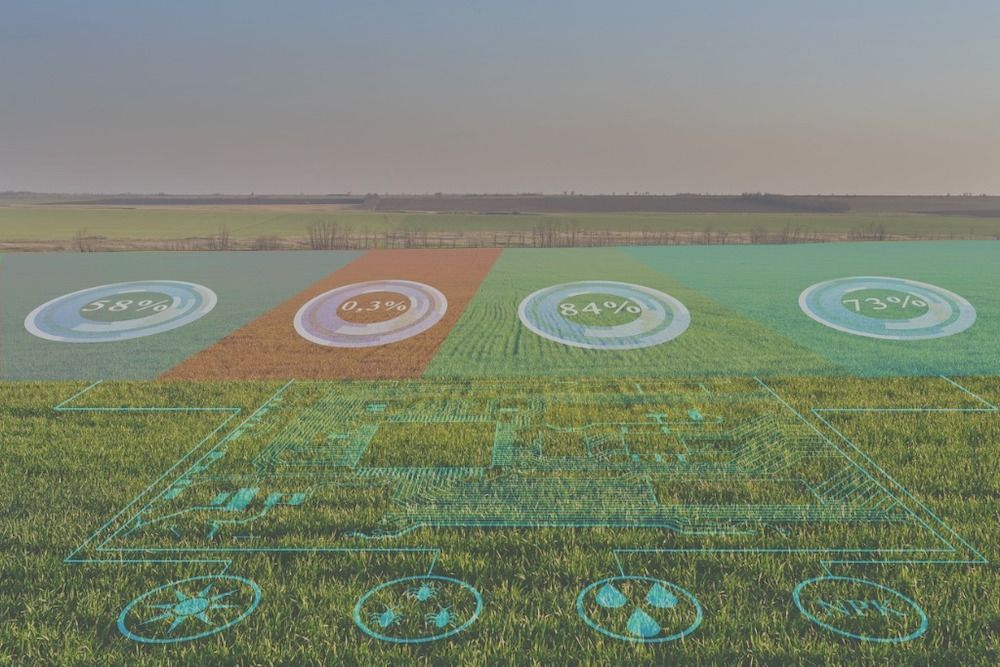2020 saw a massive shift to remote work worldwide. The technological advancements that enable people to work from anywhere are also reaching the farming sector.
“The potential for remote farming is huge,” says Moses Kimani, CEO of Kenyan agtech venture Lentera Africa. The Kiambu-based company wants to enable more people to become “remote farmers” by providing the weather data, crop analytics and drone imagery needed to keep track of a farm’s growing conditions.
Lentera’s mobile app, CropHQ, acts as a “digital farm assistant,” says Kimani, enabling farmers and farm managers to get weekly farm insight reports, as well as manage record keeping, profit/loss projections, and even connect with buyers when crops are nearing harvest.
The company supports a network of 7,000 farmers, most of which are small operations. Kimani says he hopes to see greater uptake with medium and large-sized farms as African operators increase adoption of organic practices and tech solutions, like smart irrigation.
“Africa does not want to be left out when it comes to smart and sustainable agriculture,” he tells AFN. Although farming in the continent is largely subsistence-based, he adds, technology is having transformative impacts across agri-value chains.
Remote sensing
Kimani had a 15-year career in agri-business before launching Lentera in 2016. His motivation was to provide farmers with tools to help them transition to sustainable and organic farming while also boosting their efficiency, yields and earnings.
Its starting point was horticulture, providing farmers with climate-smart fertilizers, seeds and biopesticides on flexible 60 and 90-day repayment terms. Kimani says he wanted to reduce the excessive use of synthetic pesticides in African farming, which precluded them from exporting to many European markets.
The company also built out a market linkages platform, helping farmers in its network connect to institutional local buyers, like schools and hospitals.
Lentera is now increasingly focused on remote sensing—satellite imagery specifically. Lentera was a recent participant in Airbus Bizlab’s Africa4Future acceleration program, which is designed to encourage and support entrepreneurship in Africa.
“Satellite and the application of data in farming is big in Europe,” where Airbus and the aviation company’s team of agronomists is based, says Kimani. “The program helped us plan how to integrate farming data with satellite data.”
It has also helped Lentera level-up its data services to larger growers. The company is now providing satellite-based crop analysis and modelling to sugarcane farmers, via a partnership with Mauritius Chemical and Fertilizer. The majority of the customers are remote farmers who own large sugarcane farms, he explains. Its success with the Mauritius partnership is encouraging Lentera to replicate the model in Uganda, Rwanda and Tanzania.
Kimani says that the combination of solutions on its platform is enabling Lentera to reduce or remove many of the challenges farmers face in terms of understanding field-level farm conditions, negotiating with middlemen, pricing transparency, transportation and logistics, and curbing post-harvest losses.
It is in the process of building a warehouse as part of plans to venture into B2B logistics and grow its network of off-takers.
Going organic
A key focus for Lentera is helping African farmers shift to and prove their organic farming practices, so that they have better access to lucrative international export markets.
“Our focus is organic farming, and that’s why we work with a network of farmers to guarantee the aspect of traceability,” explains Kimani.
The startup has embarked on getting the necessary certifications to enable farmers in its network to export to the European Union next year.
The other reason the company is so committed to transitioning farmers to organic farming is because of climate change. Kimani says that Africa’s farmers are feeling the brunt of climate impacts; many of the inputs it offers, like resilient seeds, are designed to help farmers adapt.
Five years in, Lentera has been slow to hit the agtech venture capital circuit. The company has been supported through acceleration programs like Airbus Bizlab and the World Bank-backed Kenya Climate Innovation Center, which provided debt financing in 2019. Kimani says he’s eying a close of its seed round next year.




